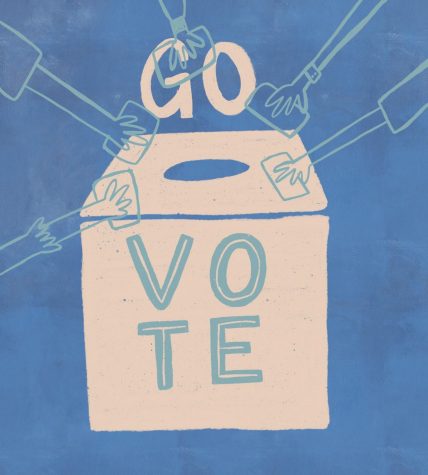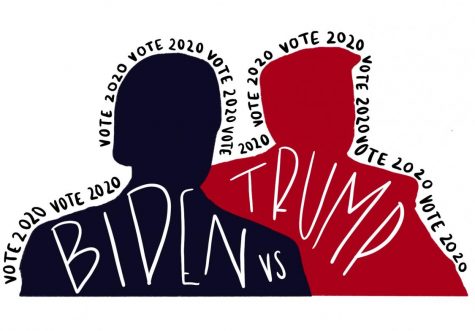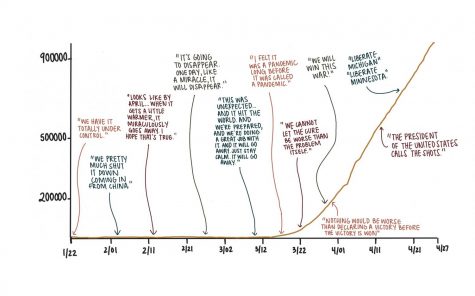Is Anything Private Anymore?
With the revelations wrought by the Cambridge Analytica scandal and the older controversies surrounding Edward Snowden’s leak, privacy has become a topic of conversation recently. Despite the debates surrounding privacy, if you think about it, “privacy” is a pretty vague word. It’s used as an explanation for countless different actions that, from most points of view, have little to do with one another:
“Why did you put tape over your webcam?”
“Privacy.”
“Why is your instagram profile hidden?”
“Privacy.”
“Why do you need me to knock before I come in?”
“Privacy.”
Humans are social beings. We need one another to thrive, learn, love and survive. That being said, time away from the herd (or “friend group,” in a college student’s case) is an essential part of living a healthy, balanced life. Time for reflection, self-care and intimacy with others keeps the mind sharp, active and engaged with the world. Despite our inherent need for privacy, we’ve reached a point as a society where one must really ask: is anything private anymore?
Those ugly Snapchats that you thought would disappear after you sent them? Screenshotted and posted in a group chat. Your embarrassing Google searches? Facebook now knows that you searched for “Why do I like the smell of my own farts?” and will now be targeting fart and pooped-themed ads at you until the day you die.
Whether we like it or not, we live in an internet age. With each passing day, the internet becomes more ingrained in the lives of everyday people. Instagram influencers live off of the income they make posing with sponsored products. YouTubers sustain themselves with the royalties they earn from running ads before their videos. Professional video gamers compete in tournaments for prizes totalling over a million dollars.
The point is, the companies who provide these services are slowly gaining more and more power over the personal lives of their clients. People on Twitter just about throw a riot when a server glitch takes down Instagram or Snapchat. Online banking and mobile deposit have become staples of every big financial institution in the world. Despite the diverse array of services these companies provide, each one is motivated by the same thing: profit. Every company is in a perpetual race to determine the next thing the public will desire, whether that be a new iPhone, a new app or a new piece of technology. How do companies like Facebook, Google and Amazon do this? They have to know their clientele.
You’ve probably heard this lecture before: big websites collect personal information from their users and sell that information to third party advertisers so that they can best reach their target audience. What you may not have heard, however, is how much power these websites can have over the people that use them.
According to The Atlantic, in January 2012, a team of data scientists at Facebook launched an experiment targeting around 700,000 Facebook users. The goal of the experiment was to see if the content that people saw on Facebook could alter their overall moods. One group saw mostly positive items on their news feed, while the other group saw mostly negative items on their news feed.
Scientists then monitored the words that people used in status updates during the week and compared the two groups to one another. What they discovered isn’t all that shocking, but it’s also not largely considered today. They found that what people see on their news feeds (or timelines, or whatever) can affect their moods. That should scare you. Hell, it terrifies me.
To know that the CEO of some company in Silicon Valley could engage in high-profile, widespread mood manipulation with the click of a button is horrific. What’s worse, it’s already happened. That’s exactly what the Cambridge Analytica scandal was about. Cambridge Analytica harvested the personal data of millions of Facebook users without their expressed consent and used it for political-advertising purposes. For all we know, the ads that people saw as a result of this scandal could have decided the election. After all, Clinton lost the swing states of Michigan, Pennsylvania, Florida and Ohio by just a few thousand votes.
So, yeah, I’ve become a proponent of privacy. In an era where it can be hard to tell what’s true and what’s not, sometimes all you can do is trust what your gut tells you. And if you can’t do that, what’s left to lean on? In order to continue to exist as a society, we have to have faith in the way that things are done. If we place faith in the wrong institutions, however, we risk falling victim to lies, deceit and the whims of those with the means to manipulate us.
Your donation will support the student journalists of Saint Louis University. Your contribution will help us cover our annual website hosting costs.











